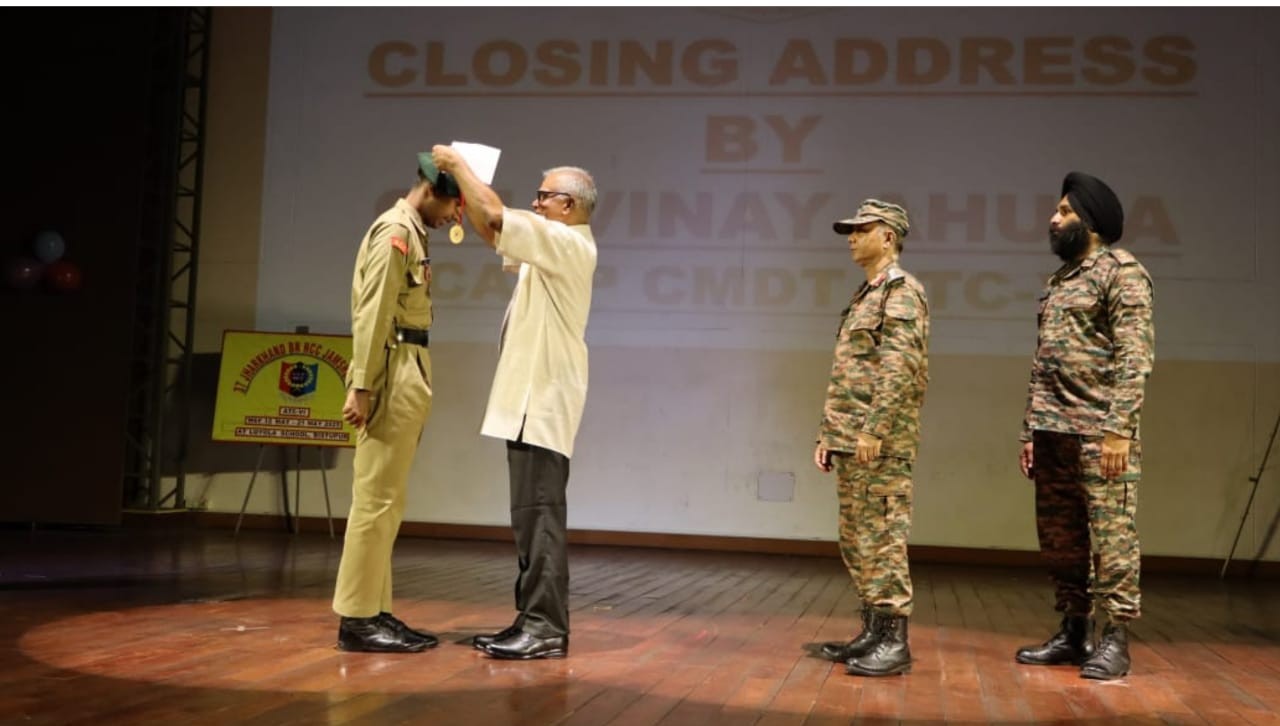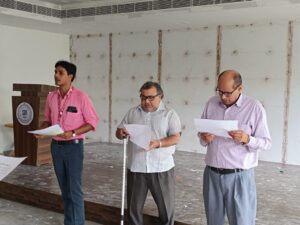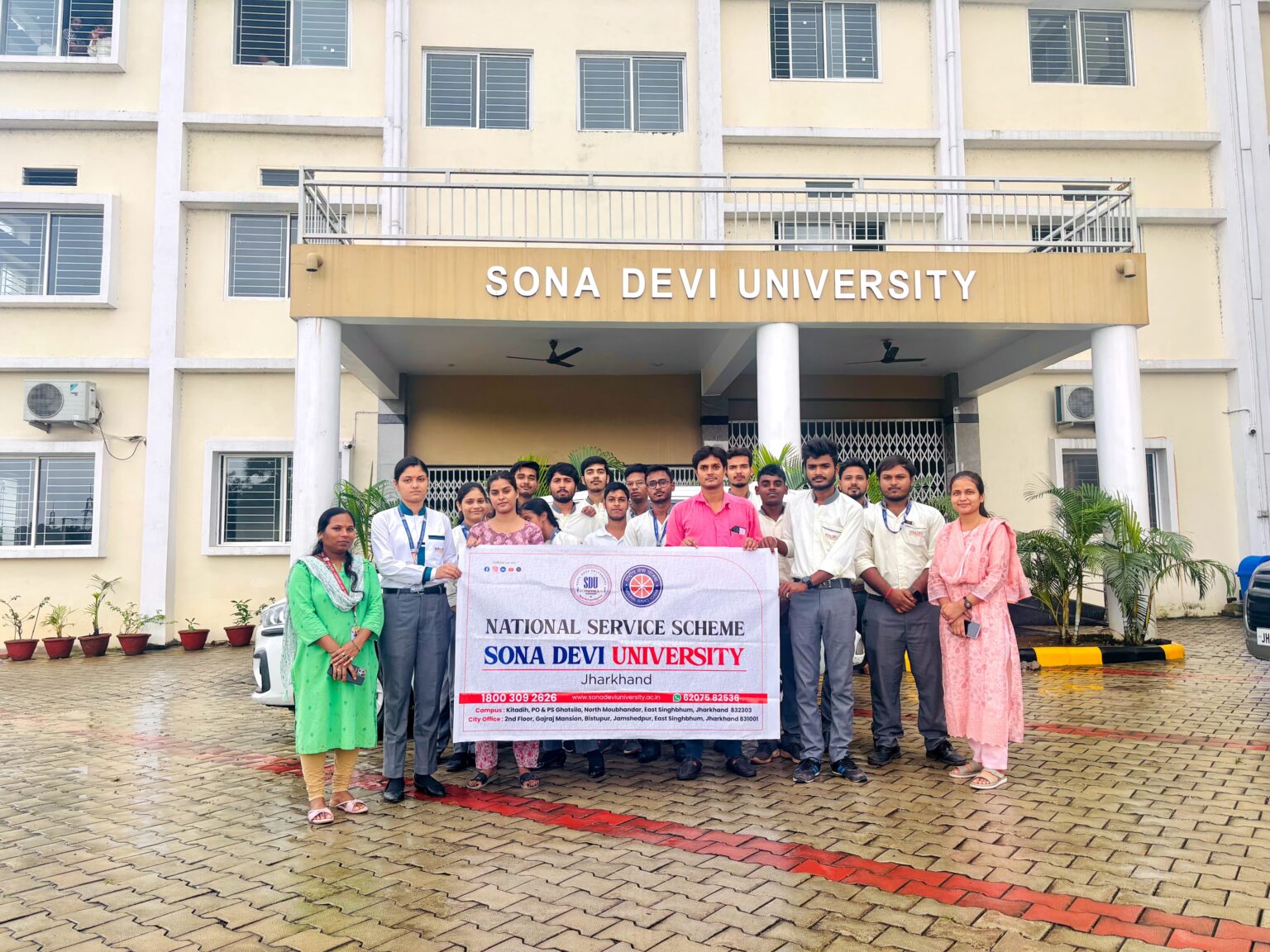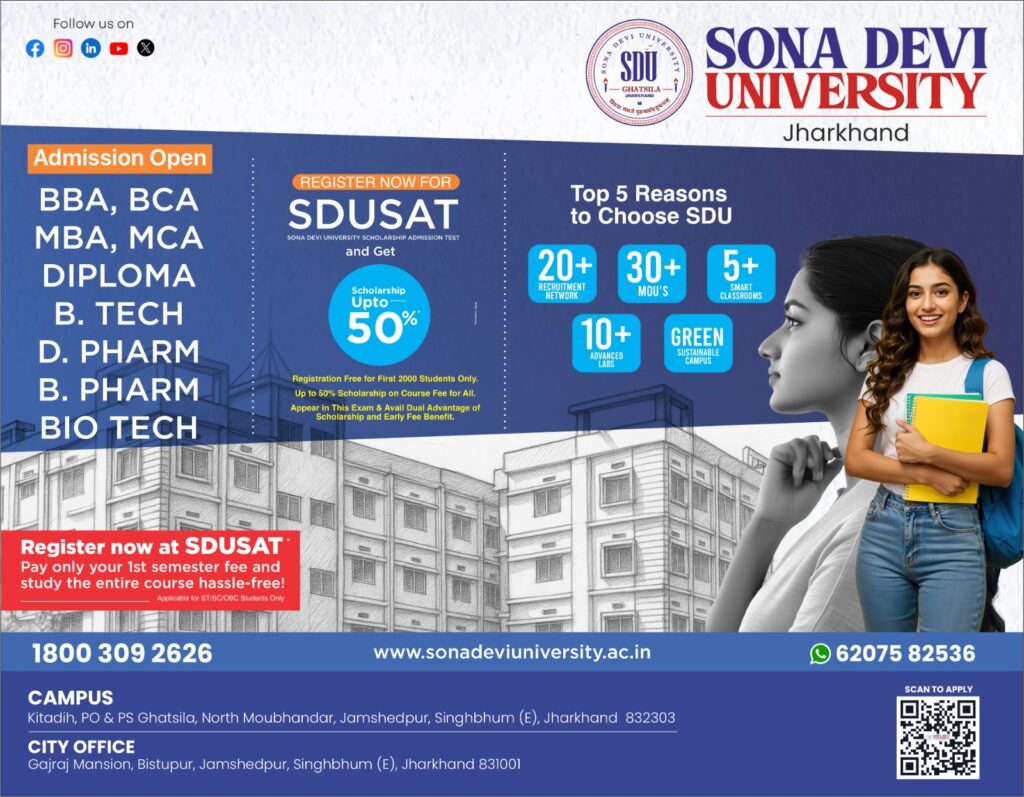National Service Scheme (NSS)
Home >> NCC/NSS
About NSS (National Service Scheme)
The National Service Scheme (NSS) is a public service program initiated by the Ministry of Youth Affairs and Sports, Government of India, in 1969 to commemorate the birth centenary of Mahatma Gandhi. It aims to inculcate the spirit of volunteerism, social responsibility, and community service among students. NSS serves as a bridge between the academic institution and the community, allowing students to develop their personalities through meaningful engagement with society.
NSS at Sona Devi University
The NSS Unit at Sona Devi University was established in the academic year 2025, 2nd June. Currently, the university operates a single NSS unit, sanctioned under the State NSS Cell Ranchi. Although recently formed, the unit has shown promise in creating a culture of social awareness and civic responsibility on campus.
NSS volunteers at the university actively participate in community-driven initiatives aimed at improving environmental sustainability, promoting social well-being, and encouraging responsible citizenship.
Activities Conducted: -
In its inaugural phase, the NSS unit at Sona Devi University has successfully conducted the following programs:
1. Tree Plantation Drive:
Held on 1st July to 2nd July, this initiative encouraged environmental responsibility among students. Saplings were planted in and around the university campus to raise awareness about climate change and green cover conservation.
In its inaugural phase, the NSS unit at Sona Devi University has successfully conducted the following programs:
- Tree Plantation Drive: Held on 1st July to 2nd July, this initiative encouraged environmental responsibility among students. Saplings were planted in and around the university campus to raise awareness about climate change and green cover conservation.
- Anti-Drug Awareness Program:
This program aimed at educating students about the dangers of drug abuse on 26thJune, 2025. The session included guest lectures, poster campaigns, and interactive discussions, highlighting prevention strategies and mental health support.


Future Programs and Expansion Plans
The NSS Unit at Sona Devi University is planning a range of impactful activities to be implemented throughout the academic year:
1. Swachh Bharat and Campus Cleanliness Drives:
Monthly drives to clean the campus and local areas, supported by awareness rallies, poster campaigns, and waste segregation workshops.
2. Health & Hygiene Awareness Camps:
Free health check-ups, menstrual hygiene awareness sessions, and mental health support workshops will be conducted for students and the surrounding community.
3. Blood Donation and Eye Check-up Camps:
Collaborations with hospitals for voluntary blood donation and basic vision screening for students and nearby residents.
4. Digital Literacy & Financial Inclusion Workshops:
Training sessions to empower rural youth and women with basic digital skills, awareness of banking services, and online safety.
5. Voter Awareness & Electoral Literacy Drives:
Activities to encourage electoral participation among youth, including on-campus registration, form filling assistance, and awareness talks.
6. NSS Special Camp (7-Day Residential Program):
A comprehensive week-long camp in an adopted village featuring sanitation drives, wall painting on social themes, awareness campaigns, and cultural exchange programs.
7. Tree Adoption and Eco-Club Formation:
Each NSS volunteer will “adopt” a tree on campus, with regular monitoring. An Eco Club will also be launched to promote sustainable living and environmental education.
Long-Term Vision
– To become one of the most active NSS units in this region.
– To adopt multiple villages for sustained developmental activities.
– To encourage maximum students’ involvement in social outreach.
– To collaborate with NGOs, public health departments, and educational institutions.
– To apply for Best NSS Unit and Best Volunteer recognitions at the state and national levels.
Safe Drive Save Drive Campaign - 26th July 2025 (Saturday)
Safe driving practices, such as adhering to speed limits, using seatbelts and helmets, and avoiding distractions, significantly reduce the risk of accidents. NSS volunteers, as role models, inspired others to adopt safe driving habits, contributing to a safer environment for everyone.



